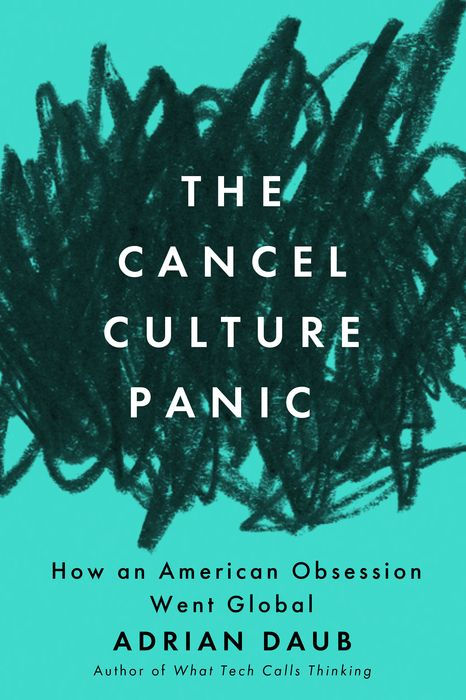The gambit of Stanford literature professor Adrian Daub’s clarifying new book, The Cancel Culture Panic: How an American Obsession Went Global, is the contention that, in fact, we don’t really know what “cancel culture” is. Moreover, the very fact that we think we do sustains it. Like every moral panic, cancel culture skirmishes thrive on contradictory impulses: incuriosity regarding accuracy coupled with intense, even prurient interest in perceived violations of norms; presumptive familiarity cut with historical amnesia. Before we have even read the latest cancel culture narrative, we already know the roles, the sides, and where we stand. Yet still we find ourselves consuming each one as the baleful harbinger of something new, strange, and profoundly threatening to the integrity of the polity.
What is cancel culture? Daub offers a working definition with three main elements: (1) the actual existence of new social practices, especially online, that some commentators find scary or confusing; (2) the claim that these practices are “part of a broad cultural shift”; (3) the notion that a “culture of left-wing censoriousness actively drives social fracture.”
Only (1) designates a “culture” in the sense of a set of signifying social practices, whereas (2) and (3) do not designate things people say and do not constitute “cancellation” so much as the way other people talk about those things. Daub’s critical intervention is to shift our attention from (1), the substance of the anecdotes, to (2) and (3), the ways these anecdotes are narrated, circulated, and put to political work. From cancel culture, to cancel culture discourse, to cancel culture panic. Or: from a complaint about a sandwich, to the mass media that amplifies it, to the political projects that make use of it.
Daub’s book, then, is not another entry in a series of sober critiques of cancel culture such as Yascha Mounk’s The Identity Trap, Greg Lukianoff and Rikki Schlott’s The Canceling of the American Mind, or Susan Neiman’s Left Is Not Woke. Rather, these books are themselves artifacts of the discourse Daub examines. The Cancel Culture Panic trawls a vast archive of such artifacts, dating back as far as William F. Buckley’s God and Man at Yale (1951) and spanning a range of media, genres, and forms: from polemics like Dinesh D’Souza’s Illiberal Education (1991) to campus fictions like Philip Roth’s The Human Stain (2000), and from the feuilleton sections of German newspapers to individual tweets. “The first thing one has to acknowledge in analyzing this discourse,” Daub cautions upfront, “is the simple but fundamental fact of how much of it there is.” A fleet and often entertaining narrator, Daub has an eye for the most fitting illustrations and manages to keep one or two examples at the center of his arguments while gesturing at many similar ones.
